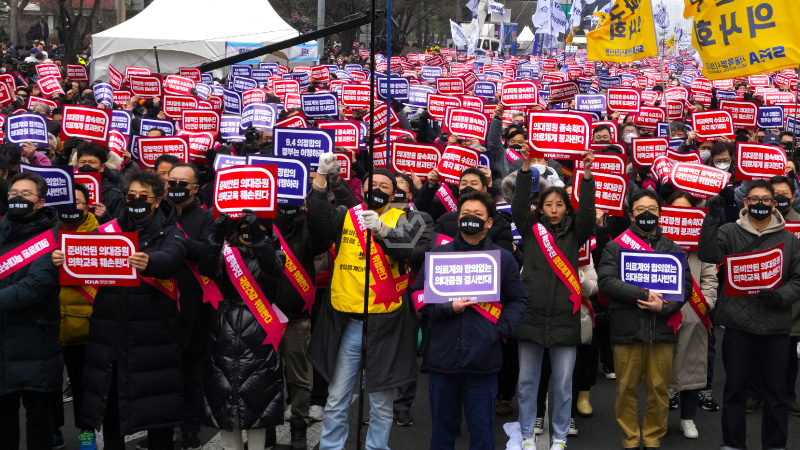- Junior physicians in South Korea are scheduled to have their licenses suspended by the government next week.
- Hospitals had to cancel hundreds of operations and other treatments as a result of their strikes.
- After they missed a deadline to resume work, the government has been taking administrative action to suspend their licenses.
Junior physicians in South Korea are scheduled to have their licenses suspended by the government next week for their refusal to cease their weeks-long walkouts, which have put a strain on the nation’s healthcare system.
In protest of the government‘s intention to drastically boost medical school admissions, more than 90% of the nation’s 13,000 medical interns and residents have been on strike for nearly a month.
Suspend licenses
Hospitals have had to cancel hundreds of operations and other treatments as a result of their strikes. Given that South Korea has one of the lowest doctor-to-population ratios in the developed world and an aging population, officials argue that the country urgently needs additional doctors. Doctors contend that a sudden, sharp rise in student enrollment is beyond the capacity of schools and would eventually jeopardize the nation’s medical system.
After they missed a deadline to resume work, the government has been taking administrative action to suspend their licenses. The actions include notifying the strikes of potential license suspensions, providing them an opportunity to respond, and dispatching officials to legally validate the strikers’ absences.
At a conference on Thursday, Vice Health Minister Park Min-soo stated that the government plans to deliver notices to striking doctors regarding its ultimate decision to suspend their licenses after completing those measures for a few of them by next week.
The striking doctors might be subject to at least three-month suspensions and possibly prosecutions by prosecutors under South Korea’s medical law for defying the government’s order to return to work.
Major university hospitals’ senior physicians have opted to step down next week in support of their junior colleagues, although the majority of them will probably still report for duty. From the present quota of 3,058 students, which has remained constant since 2006, the government hopes to raise the cap by 2,000 beginning next year.



